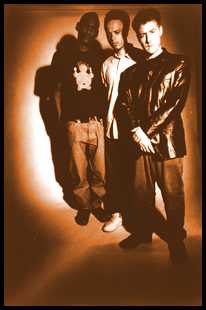They spend much time and effort waxing lyrical over the hip-hop legends, often rambling on for pages about how they're defining a generation in the latter half of the 20th century.
Such ramblings can leave many fans desperate to read any review of the band in plain English.
However, if you're a newcomer who wants to know why they are one of the most acclaimed acts of their generation, this will hopefully make things a little clearer.

The first thing you need to know is that they're from Bristol, arguably the hippest city in Britain right now.
The second is that they worked with Nellee Hooper, one of the most sought- after producers in the business. He in turn went on to turn Bjork into a superstar thanks to his work on the Debut and Post albums.
Finally, they're not too keen on Sarah Ferguson, as their recent verbal display at the MTV Music Awards testifies.
However, the best way for newcomers to get into the band is by listening to their albums, the latest of which, Mezzanine proved to be one of the music highlights of last year.
It's a little over 10 years since the band began to shape the soul-influenced hip- hop sound that would ultimately bring them accolades and commercial success. The ground-breaking album Blue Lines was released in 1991 and instantly stood head-and-shoulders above the mire that was the sound of electronic music trying to define itself.
Strong female vocals are a recognised feature of the Massive sound and Shara Nelson's silky contribution to the gently melting sound of singles Unfinished Sympathy and Safe From Harm saw the public sitting up and taking notice in a big way.
Fans were on tenterhooks to see what they would do next but it wasn't until 1994 when Protection (Tracey Thorn of Everything But The Girl supplying the angelic vibe) that we heard from them again.
Unfortunately the album was overshadowed in many ways by fellow Bristolians Portishead, whose Dummy album led lazy music writers to lump them together with Tricky's Maxinquaye under the banner of 'Bristol's trip-hop triumvirate'.
Casting this off and effectively disappearing for another four years they fluttered back into view with 1998's dark masterpiece Mezzanine, a symphony for the end of the millennium.
Whichever way you look at them, their goal is simple. "We just want to make good music," says Mushroom, who together with 3D and Daddy G are perhaps best described as Pink Floyd for the hip hop generation.
"We're not just interested in making something for people to throw their arms
and legs about to on a dancefloor."
Options


